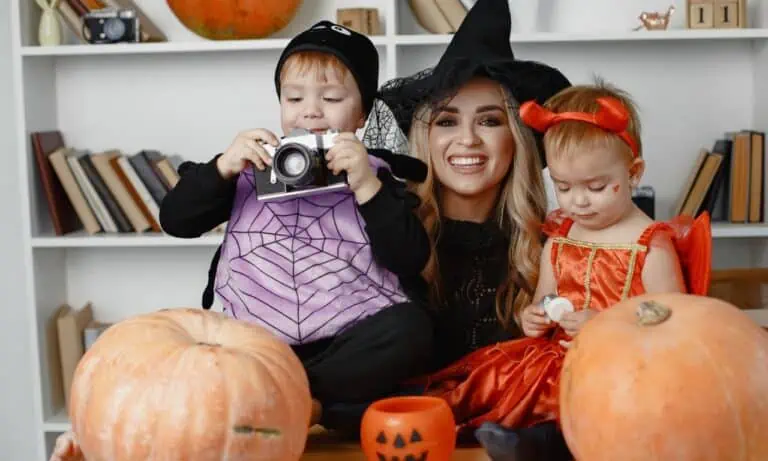20 Things Parents Should Never Say to Their Kids That Damages Their Self-Esteem
This post may contain affiliate links. As an Amazon Associate, I earn from qualifying purchases.
Within therapists’ offices globally, countless adults are presently grappling with the lasting impact of words uttered by their parents (and other adults in their lives) during childhood.
Often, parents fall into negative patterns based on their own childhoods. Sometimes, they don’t realize how much their words affect their kids’ upbringing. Other times, they know very well what they’re saying and purposefully say hurtful things.
Irrespective of a parent’s self-perception, to their child, they are nothing less than the most significant presence in their little lives. This underscores the critical importance of being mindful of our words when communicating with our children, acknowledging that our expressions become a small yet influential voice in their developing minds.
However well-meaning (not), here are things we should never say to a child due to the damage it does to their self-esteem and morale.
1. No More Questions

We’re living in a “why?” generation. And kids love to explore and learn how the world works. They want to know everything, and sometimes we don’t have enough caffeine in our system to deal with all the questions.
Shutting down a curious child is not the answer. This kills their confidence and hunger for knowledge and makes them feel dumb. They will avoid asking any more questions, but it will create a timid human who feels like they’re a bother.
2. I Could Do That At Your Age

A parent and a child are two different personalities who grew up in different times under different circumstances. If a parent could tie their laces at three years old, good for them. But we should not compare ourselves to our kids because they’re not us.
Plus, I’m pretty sure most parents couldn’t operate a computer at their age (now little tech wizards), but they don’t remind us that every three seconds.
3. Character Shaming
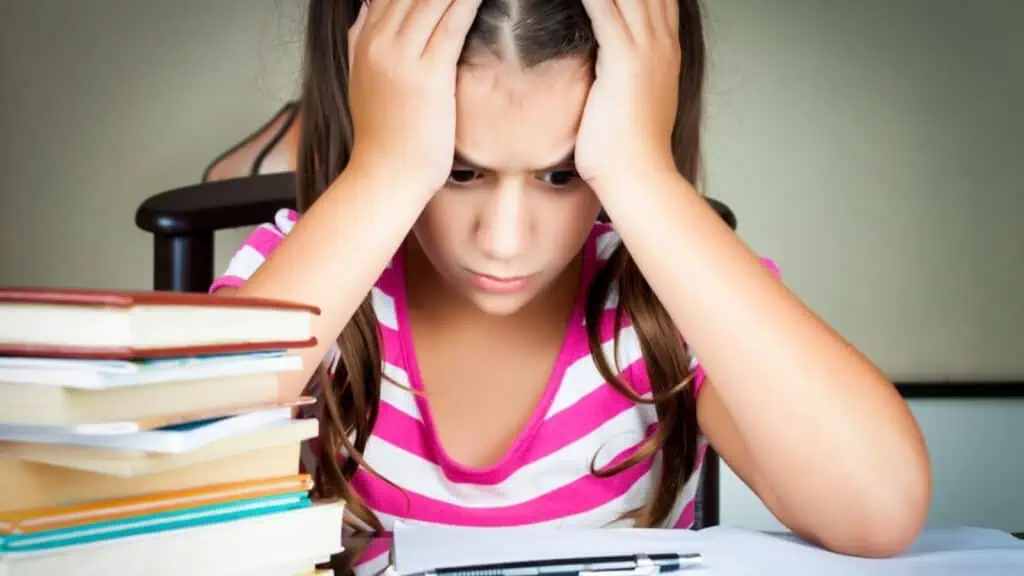
Avoid telling them things like, “You’re lazy!”
Granted, some kids are lazy bums who need to be pushed every minute to do the basic life’s minimum. A parent’s job is to encourage them to do better, not remind them what a sloth they are.
If they think that’s what they are, there’ll be no point in trying to change.
4. Body Shaming
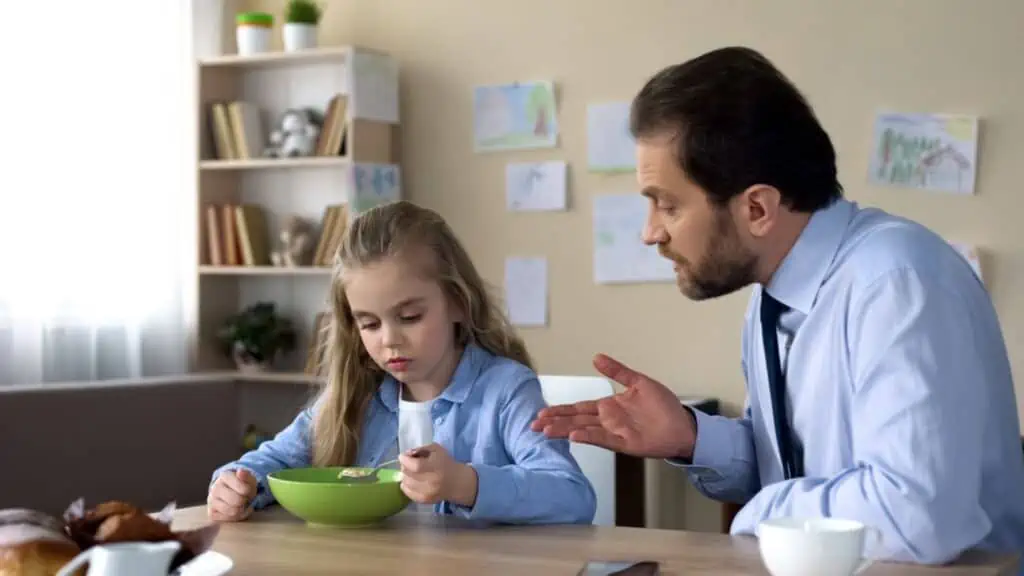
Even worse than character shaming is body shaming; at least they can do something about their character.
Calling a child “too fat, too skinny, too dark, too pale, too tall” is absolutely hateful and unnecessary. There may be little or nothing they can do about these situations. A child shouldn’t grow up with low self-esteem because of all the digs at their body they heard as a kid.
5. Get Over It Now

Love them as we do; kids can be annoying. And oftentimes, their immature nervous system (aka processing system) turns a small issue into a full-out drama. It may seem the silliest thing in the world to a parent, but the child feels truly distraught and upset.
Giving a child a timeline to get over their feelings is insensitive. If they decide to be sad about losing the imaginary friend they have been making up for years, let them be. They’ll remember this season of their life with fondness and gratitude. Plus, they’ll learn that expressing their emotions is okay rather than bottling them all up inside.
6. You’re Fine
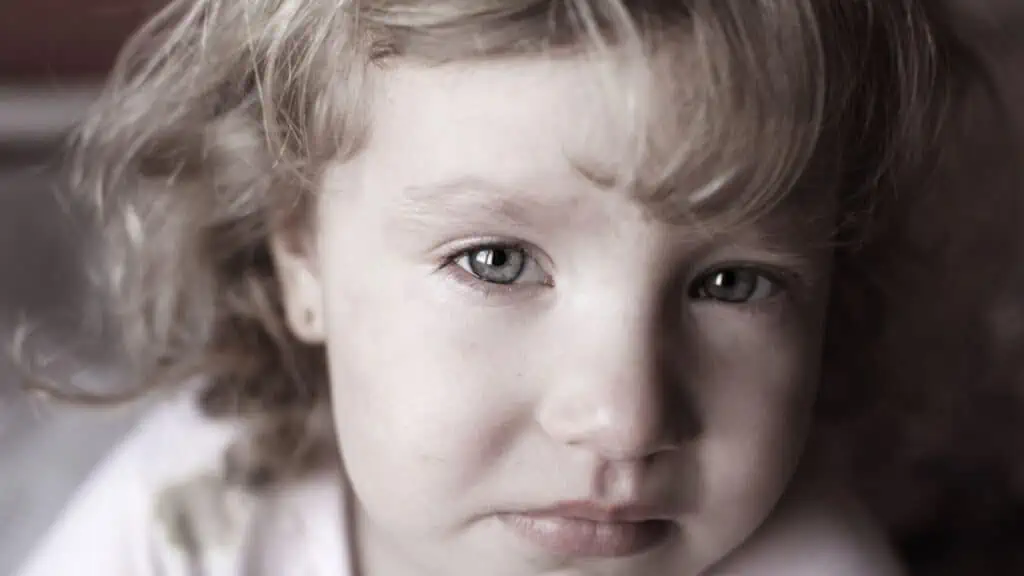
No, they’re not. They’re scared and anxious and don’t understand a lot because they have the life experience of a housefly. It may seem trivial to an adult, but a child needs their support to help them understand what’s going on in their little brains.
Validate their fears and help them work through them. That’s how to nurture a grounded individual who isn’t afraid to rationally deal with their emotions.
7. Why Can’t You Be More Like So-and-so?
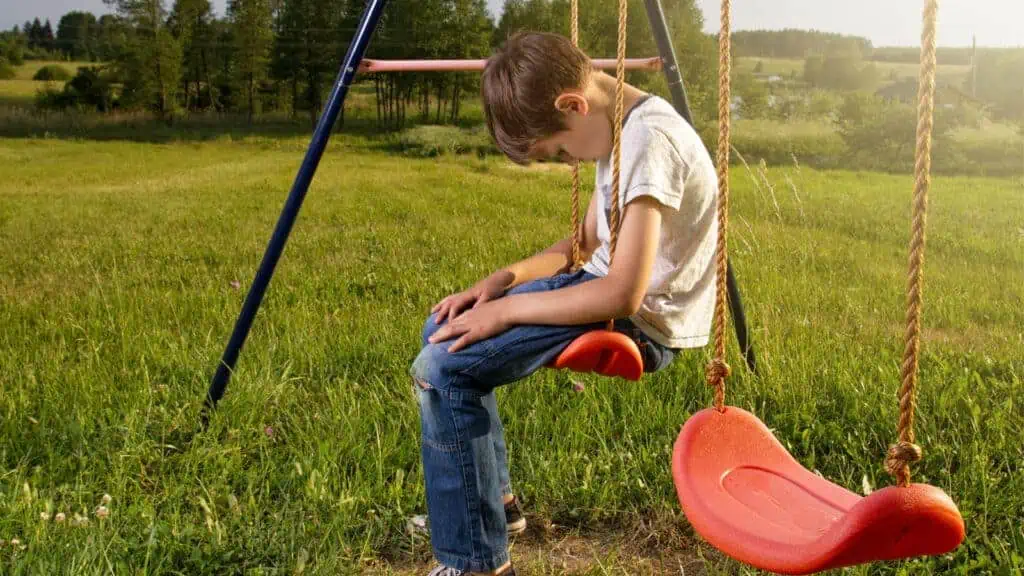
Every child is different and beautiful, and there’s beauty in that diversity. Comparing a child to their sibling or friend gives them the impression that they are less worthy than their counterpart.
Starting the comparison game at an early age will only fuel the fire. Once they are exposed to social media, they’ll have a hard time embracing their own lives if they’re used to constantly being compared—all a recipe for poor mental health.
8. Haven’t You Learned Anything Yet?

If a parent has been looking for the fastest way to make their child feel dumb, this is the perfect question to ask them. After repeating ourselves for the hundredth time or feeling like we’re stuck in deja vu, it can be tempting but totally unnecessary to say this mean comment.
A child needs to believe they were blessed with a working brain, even though they sometimes act like they have the brain of a starfish. They’re children; they’ll grow and learn, but we must believe it for them, too, as parents.
9. You’re so Perfect
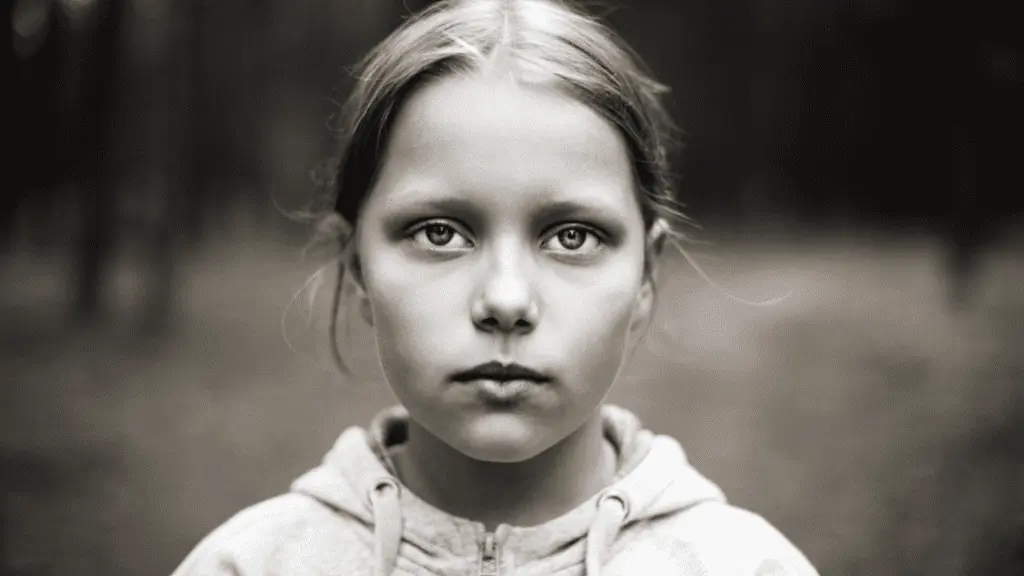
Do you want to put a lot of pressure on a child? Just emphasize how perfect they are all the time.
A child should not feel like they need to live up to a certain level of perfection because they will fail, and they will be ashamed. Or they may hate their parent for thinking they’re so perfect, when they’re hiding a secret or feel inadequate.
A child often told how perfect they are will never admit their faults or struggles to their parents, and they may turn to destructive habits to cope with the imperfections.
10. You Should Always Listen to Adults
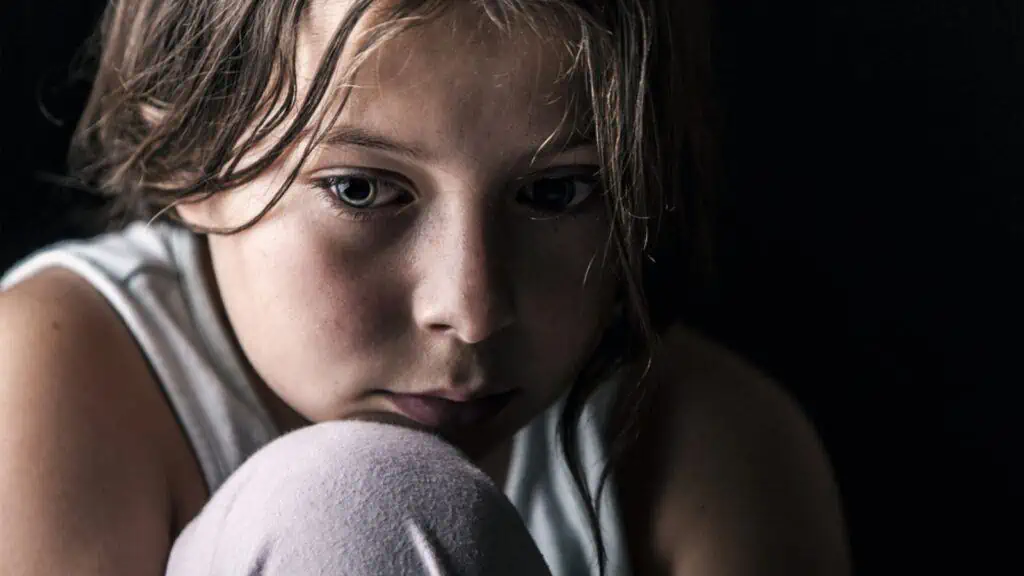
While a parent wants their child to listen to them, making them obedient to all adults isn’t a good idea. In reality, some adults can’t be trusted, and some want to hurt children (sadly).
Teach a child that they, too, have a voice and they don’t have to listen to adults just because they’re adults. Some adults lead kids astray just because they’re adults. Teach a child to ask questions, to say no, and to run requests from adults by their parents.
11. You’re Too Young to Understand
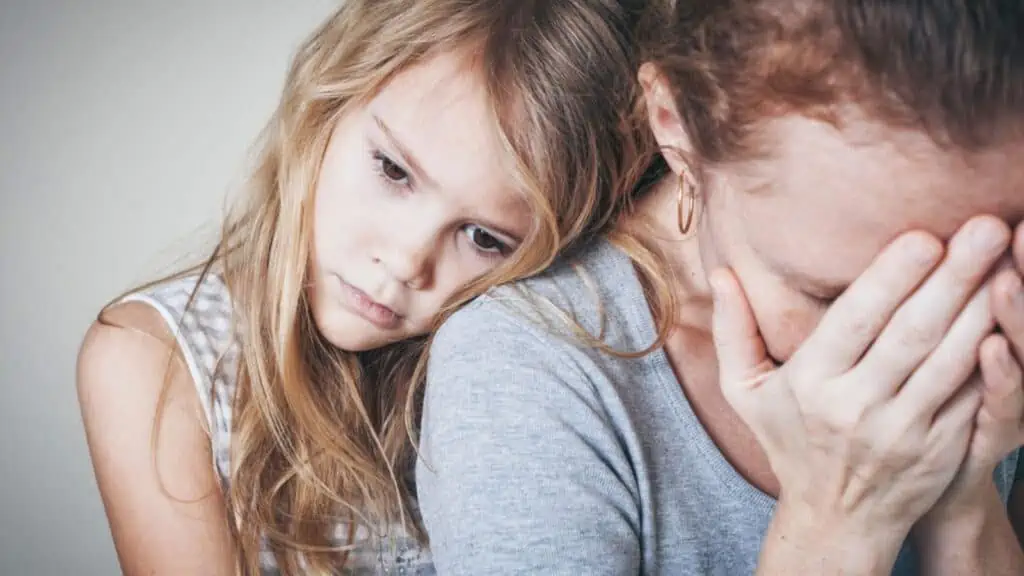
If they’re asking, they’re not too young to understand. And being brushed off means they’ll go to their peers or someone else for an answer- one a parent may not like.
Some kids have an understanding capacity way above their age. It doesn’t help to dumb down things for them because they’re children. If they ask intelligent or difficult questions, gather all that brain neurons and explain things as clearly as possible.
12. You’ll Never Be Good at That

Making negative assumptions about a child’s ability will never bode well. It will lead them to second-guessing anything they want to try in their life.
Plus, they may not be good at something now, but with practice and perseverance, they may actually do it. But it won’t happen if the parent keeps telling them they aren’t built for that particular thing. Be their loudest cheerleader, even when they’re clearly struggling.
A day will come when they’ll make it or quit, but it won’t be because Daddy didn’t believe in them.
13. That’s a Stupid Idea

Maybe it really is a stupid idea, but don’t tell them that. Allow children to be independent thinkers by helping them explore their ideas in a safe environment. The outcome will determine just how smart the idea was.
Good parenting involves supporting their ideas and walking with them on the journey to good ideas. If they make a mistake, they’ll learn so much more than being told something was stupid.
14. Don’t Make Me Do Something I Will Regret

If a parent can’t control themselves, they should not make it the child’s fault. Taking ownership of one’s own emotions and actions is so important for teaching a child to be a well-adapted adult someday.
This strong statement makes all of a parent’s mistakes, especially discipline, a child’s burden. No one can make anyone do anything, which is true of parents and children.
Learn self-control and wisdom (and how to apologize when we mess up), and do right by the kids.
15. I Don’t Have Time For You

Any child who hears these words from parents will know they’re not loved, valued, or wanted. Time is one of the biggest gifts a parent can give their child to help them thrive and feel loved.
They may grow up feeling like a massive inconvenience in life and try to occupy as little space as possible. If a parent is too busy with something extremely important, they should say so and promise to give the attention they need when they’re done.
16. Don’t Come To Me When You Get Into Trouble

Parents are a child’s safe haven; a child should know that they always have open doors and open arms in their parents. It’s heartbreaking to say this to a child because it takes away their sense of security. Who can they feel safe with if not their own parents?
A child won’t come to a parent when they’re in trouble. And they’ll wish they did. But the child will remember you said not to.
17. I Told You So
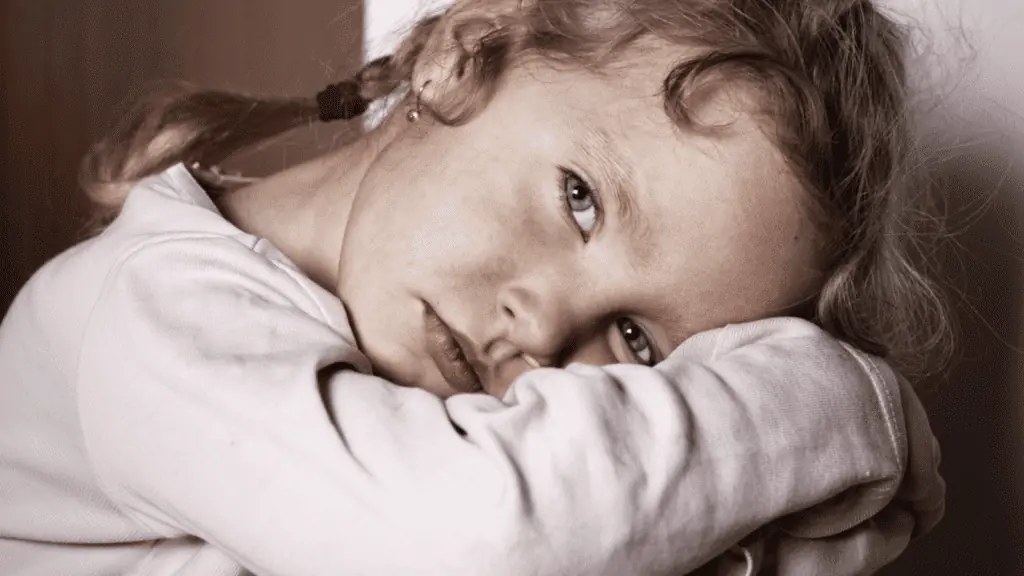
This statement disregards compassion or the fact that we’re all human. If a child makes a mistake, helping them learn from it is better than rubbing it in their face and making them feel dumb.
A tired or frustrated parent will be tempted to say this, but it will likely escalate a situation that they could have helped the child manage and learn from.
18. Do Better Next Time

Holding high expectations for children who are learning every day is tough on their mental status. Guide them to make good choices, but don’t be too hard on them when they inevitably falter.
Once they’re in a good emotional state, discussing options for how they could have done better is a great learning experience. However, it needs to be approached from a place of love rather than making them feel ashamed.
19. What’s Wrong With You?

After a tough day, a child making another mistake or not heeding warnings can lead to this frustrating question (we’ve all been there). But it can make the child feel belittled and that there is something fundamentally wrong with them.
Eventually, they’ll start wondering if they’re broken and flawed. This can affect their decision-making skills and ability to connect with other people in the future.
20. Stop, Now!

Threatening a child to stop doing something, whether it’s an action or expressing an emotion, is a dead-end road. Teaching our children to stuff their emotions or stop doing something they’re doing simply because other people find it annoying (assuming it’s safe) is not a good habit.
Teach them to appropriately manage their emotions, depending on what type of setting they’re currently in.
16 Common Phrases Grandparents Should Stop Saying to Their Grandkids

Do you still remember something your grandparents said that made you uncomfortable? As much as we adore our grandparents, their words (even with good intentions) can sometimes hurt our feelings or are plain embarrassing.
If you are a grandparent, using your words mindfully around your grandkids is as crucial as any other relationship. Words hold immense power and shape our kids’ behaviors and perceptions.
16 Common Phrases Grandparents Should Stop Saying to Their Grandkids
How to Be a Good Mother: 16 Practical Tips

Being a mom is one of the world’s most important, challenging, and rewarding jobs. It’s also one of the most difficult to define. What does it mean to be a good mother? There are as many answers to that question, but none of them have anything to do with striving for perfection or doing more.





